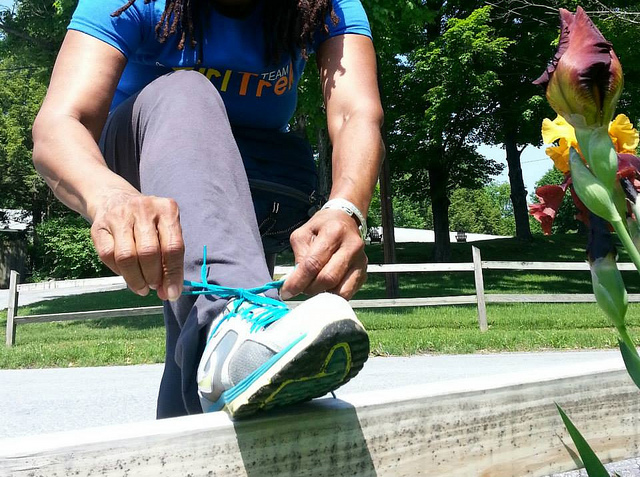
Getting a community to start exercising involves a lot more than posting up fliers and hosting some aerobics classes.
It takes community buy-in.
A recent study from the University of Missouri found that exercise programs aimed at minority adults are doing some short-term good, but most come across as culturally tone-deaf and are by and large failing to connect with the communities they intend to help.
Researchers analyzed 100 previous studies that measured results from exercise programs lasting three months on average and involving a total 21,151 minority participants. Only a quarter of these programs delivered the intervention in a place considered culturally comfortable, such as African-American or Latino churches. Even fewer programs enlisted community members to assist with the fitness outreach.
Overall minority adults are less physically active than the general population, putting them at greater risk of developing diabetes, heart disease and other chronic illnesses, according to the Department of Health & Human Services. If exercise programs are indeed trying to change these downward health spirals within certain groups, researchers say program organizers must do a better job of recruiting people from these communities to help plan and lead the interventions.
“There’s a lot of talk (among researchers) about the importance of tailoring interventions to a group, whether it’s men or women, or culturally tailoring it to a minority group. So we were really surprised to find that this isn’t happening in most exercise interventions,” said Vicki Conn, one of the study’s authors and a nursing professor with the University of Missouri.
Getting community leaders on board is crucial to the success of any program within most African-American communities because others seek out and trust their feedback, especially when it comes to neighborhood affairs, said Rashawn Ray, an associate professor of sociology at the University of Maryland and a health policy research scholar with UC Berkeley and UC San Francisco.
“First you need people that are culturally aware and from the minority group on the health policy committee making decisions,” Ray said. “Then you need to go to the local community and talk to the gatekeepers – the pastors, the barbers and hair stylists – and ask them, ‘What will it take to get this happening?’ They’d be more than happy to tell you.”
But cultural relevancy extends beyond race, Ray added.
“It’s thinking about what would make individuals from different groups comfortable,” he said. “If people are going to expose their body to the world by running, walking or swimming, people need to feel comfortable that they’re not going to be judged or treated differently.”
He said the YMCA wised up to this when it created a women’s-only zone in some of its gyms. Women ultimately ended up working out more frequently and vigorously at these facilities, Ray said.
Creating comfortable environments for exercise is key but so is hosting activities that people are familiar with, said Rebecca Hasson, a Kellogg Health Scholar with UC San Francisco and UC Berkeley who studies health disparities. If people don’t like an activity, they may put up with it temporarily but it’s not likely to become a long-term habit, she said.
“Anybody can go out and do exercise for a week. Even if they hate it, they can get on a treadmill for an hour,” Hasson said. “But if you’re trying to alter someone’s behavior to benefit their health long-term you need to provide physical activity that they feel comfortable doing. Dancing is important for a lot of ethnic minority cultures and every age range likes to dance.”
For salsa, hip hop dancing or just about any activity, the program scientist could calculate how frequently someone would need to do it and for how long to start shedding pounds or at least maintain their weight, Hasson said.
The study also revealed that short-term exercise may not always lead to losing weight but it’s crucial to stop gaining.
“Even in the short timeframe of these studies the subjects in the control group (people who were not participating in any exercise program) tended to gain weight,” Conn said. “I think this is a really important message because obesity is becoming such an enormous problem, and disproportionately among minority groups.”
Obesity substantially increases a person’s risk of heart disease, diabetes, arthritis and early death, Conn said.





